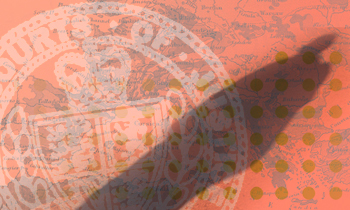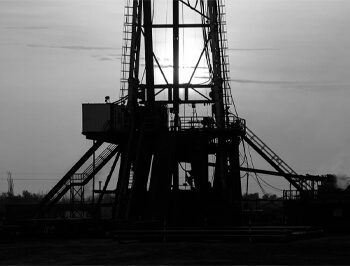Endeavour Mining: Must Dig Deeper.
Endeavour Mining’s admission that it doesn’t know who benefited from $15m of “deliberately disguised” payments authorised by its former CEO represents a serious corporate governance failing at a FTSE 100 company. Were the company’s disclosures about the background of its CEO sufficient? Or did informed investors take a key man gamble that has not paid off?
Recent events have moved fast at Endeavour. In January, it fired longtime CEO Sebastian de Montessus for serious misconduct. Why? It discovered that in March 2021 de Montessus had authorised a payment of $5.9m to a mystery company in the United Arab Emirates. When questioned, de Montessus said the payment was for security equipment. The board considered this explanation “implausible and untrue” and fired him.
Having ousted the CEO, the company spent February and March looking at past transactions. Accountants found two further payments to the same recipient in 2020, totalling $15m. Its financial statements were inaccurate for two successive years. De Montessus denies receiving any personal benefit from the payments.
For now, shareholders (including funds managed by Blackrock, Vanguard, State Street and Ruffer) are keeping faith. The shares fell sharply when the scandal broke, but have since recovered.
Even if class action lawyers struggle to land a blow, underwriters, non-execs and fund managers should see the saga for what it is: an avoidable due diligence failure. Two warning signs were especially notable.
First, this is not de Montessus’ first governance misstep. For most of his tenure at Endeavour, he was under criminal investigation by French prosecutors.
The background and evolution of the investigations, which relate to his time as an executive at Areva (a French state-owned nuclear power company), are complex. In 2007, Areva acquired UraMin, a Canadian mining company operating in Africa. At that time de Montessus was head of Areva’s mining unit; he later became CEO of UraMin. The acquisition was a disaster. In 2011, Areva wrote off the entire €1.8bn purchase price.
The botched transaction became a major political and financial scandal. The scale of the write-down required the French state to bail out Areva. The Cour des Comptes, France’s state spending watchdog, investigated and referred the case to public prosecutors, who opened two criminal investigations in 2014. The first is focussed on whether Areva’s directors (who included de Montessus) prepared inaccurate financial statements by under-provisioning for the UraMin write-down. The second investigation is examining if bribes were paid in connection with the UraMin acquisition and/or if kickbacks found their way to Areva executives.
De Montessus left Areva in 2012 after it emerged that he had commissioned a Swiss private detective to investigate the husband of Areva’s former CEO. The resulting report included confidential details of the husband’s bank accounts and telephone calls. (The detective was subsequently convicted; no action was taken against de Montessus, who denied instructing him to do anything unlawful).
De Montessus next became President of La Mancha, a private mining business formerly owned by Areva. When that company became Endeavour’s biggest shareholder in 2015, he became the boss at Endeavour.
Endeavour, then listed only on the free-wheeling Toronto Stock Exchange, made no reference to the criminal investigations when announcing his appointment.
In 2018, de Montessus was placed under formal investigation (“mis en examen”) in the bribery/kickbacks case. The company disclosed this promptly enough. Endeavour’s 2021 prospectus prior to a London share sale included similar disclosures.
In 2019, de Montessus was placed under formal investigation in the parallel accounting case. However, the company did not disclose this until 2022. (The legal procedure is messy: de Montessus was put under formal investigation for the first time in this case in 2019. He appealed. In 2022, his appeal was successful. Prosecutors counter-appealed. They were successful and in late January 2024, just weeks after being fired, he was once again under formal investigation. One can only speculate how much of this the company’s investors were aware of.
There is a second echo of the Areva affair in Endeavour’s recent troubles. This concerns the role played by Ras Al Khaimah (RAK), a one-horse Emirate usually overshadowed by its neighbours Dubai and Abu Dhabi. The mystery company to which de Montessus directed the disputed $15m payments was incorporated in RAK. It was dissolved within days of the final payment and Endeavour’s investigators were unable to discover who was behind the company. (No shame there – RAK is a little off the beaten track and not known for transparency).
But did Endeavour and its investigators know of De Montessus’s previous alleged connections to the tiny emirate? In 2018, Le Nouvel Observateur, a French news weekly, claimed that de Montessus was a key client of a secret “tax optimisation” network based in RAK, which it dubbed the Helin Group.
The group had been established by a Belgian aristocrat who had been convicted of tax fraud in the 1990s (later acquitted on appeal). Le Nouvel Observateur, citing tens of thousands of leaked emails and documents, alleged that members of the group used codenames. (De Montessus was allegedly “Monsieur Tulip”, something he denies.) The magazine claimed that:
- In 2010, a company in the Helin network advanced €750k to De Montessus for the purchase of a yacht.
- In 2011, another Helin company was used in an elaborate and ultimately failed scheme in which Areva attempted to buy €320m of uranium, which financial investigators were unable to decipher.
- In 2013, a company in the Helin network was used by La Mancha to acquire the Ity mine in Ivory Coast (now owned by Endeavour).
The RAK-based Helin group and its clients are under investigation in France, Belgium and Switzerland. French prosecutors suspect that over 300 French people used the network to avoid tax. In recent months, Helin clients have been convicted of tax evasion or reached civil settlements.
De Montessus denies any wrongdoing in the Areva-related affairs. He has not been charged in the ongoing cases. He denies any wrongdoing at Endeavour.
Contact us:
"*" indicates required fields


